App State College Democrats Club hosts 2019 Boone Town Council forum
October 15, 2019
This year, the Appalachian State College Democrats Club led the 2019 forum for Boone Town Council elections. Senior political science major Lee Franklin and junior economics major Dalton George serve as an Election Coordinator, and University Representative, respectively, within their club. In the past, the Student Government Association has organized the event. Because all four candidates are democrats this year, George said the club felt it would be a great chance to make their presence known on campus and create an event that welcomed both students and community members. A record of the Q&A follows.
As we know, Boone has taken some steps to become a more sustainable town. As a member of the town council, what specific plans for sustainability would you want to implement that are not already being taken, and how do you plan on paying for them?
Dustin Hicks:
Hicks, a senior sustainable development major, said many ideas for sustainability, like the 2030 plan for carbon neutrality, have been talked about, but no actions have been taken.
“My first steps would be to make town meetings more open to the public and make sure everyone is involved with the decision processes,” Hicks said.
Loretta Clawson:
Clawson, the mayor pro-tem, said the Town of Boone is working aggressively to become more sustainable and is planning to become carbon neutral by 2030. Clawson mentioned many initiatives that have been introduced throughout Boone like electric bikes and energy audits to cut energy use.
“I wish we could have more money to spend on sustainability. If we can get our tax money back from the county, then we can use that toward sustainability. Our new town campus would be carbon neutral,” Clawson said.
Nancy LaPlaca:
“I believe everyone here wants the same things; we all want clean energy, livable communities, neighborhood conservation and affordable housing. However, as much as people like to talk about clean energy, the simple truth is that App State is 2% clean energy and Boone is 1%. We can talk about carbon neutrality, but if you ask Duke Energy what carbon neutral is, they will count it as plain,” LaPlaca, principal of her own energy consulting firm, said.
LaPlaca said unless more actions are taken by the town and university, no progress will be made.
“Wonderful work has been done, but there is so much more to go; we need to go solar,” LaPlaca said.
Virginia Roseman:
Roseman said tiny steps have been taken toward sustainability in Boone, but the town, university and county need to work together to make improvements.
“One thing I personally think everyone can participate in more is walking; we need more sidewalks, we need more walking paths, and we need more green trails. I would love to see our bus transportation expand allowing people further out to come into our wonderful town,” Roseman said.
She said she thinks App State has been productive with sustainability initiatives and solar panels.
“I would be interested in asking the university how it is working for the school and how Boone could duplicate it into our town or how can we learn from it to be better for the future,” Roseman said.
Do you believe it is possible to ensure an economic model to preserve and incentivize small business in the face of larger corporations moving in? If so, how can the town council do it, if not, what would be your plan for promoting business in Boone?
Loretta Clawson:
Clawson, as the liaison for the Downtown Boone Development Association, said she and other members of the association have experience working with small businesses in Boone.
“I want to continue to make street improvements as well as see the completion of Howard Street. I believe once complete, it will open up even more opportunities for small businesses,” Clawson said.
Nancy LaPlaca:
Small business is one of the cores of Boone; it is one of the things that makes Boone so special, LaPlaca said.
“We have community supported agriculture and small local food providers, but when it comes to energy, we allow Duke, like most everywhere else in North Carolina and the world, to provide our electricity,” LaPlaca said. “When you look at the retail market, which is Howard Street and King Street, there is no solar power. Until change to the net metering rules occur, the town will continue to have none. Our young people deserve better, they are having a hard time in so many ways, and they deserve to have better and more solar energy place to call home.”
Virginia Roseman:
Roseman said she has always wondered why small businesses never seem to stay in Boone for long.
“I believe there are a few things we must do. We have to push buy-local; it is a core element of keeping our community and town together. If we remain strong, we will succeed,” Roseman said.
She said she has also considered introducing a new business tax break for small businesses in their first year, because the first three years are the most challenging.
“I am aware this may cause Boone to have to tighten up its belt just a little bit, but I am more than willing to do that if I can help someone else be more successful in the future,” Roseman said.
Dustin Hicks:
Hicks said a lot could be done to help Boone’s economy, like providing support for local agriculture, using taxes to incentivize people to shop locally or possibly creating a currency for locals and students to be used in Boone.
“We should definitely prioritize our local business rather than our large corporations, like Walmart, and push for businesses to hire with equity and justice in mind,” Hicks said.
Plans on the state level have recently been considered for a widening of U.S. Highway 105 and even a bypass around Boone, both of which have been controversial. With the increasing congestion in Boone, how do you intend to alleviate traffic?
Virginia Roseman:
Roseman said many streets in Boone are not currently equipped to hold much traffic, so roads may need to be widened in the future.
“If we can make our community more foot friendly and bike friendly and mass transit friendly then that would be the first step,” Roseman said.
She said parking decks could serve both locals and students. Roseman said she has contemplated heavily about widening U.S. Highway 105, but has concerns.
“If we expand and add the median with the turnaround, how will that affect our local businesses? Parking would be cut short, which could cause a loss of clientele. I think the first and foremost step we need to take is going more walk, bike and mass transit friendly,” Roseman said.
Dustin Hicks:
Hicks said he believes housing in Boone needs to be addressed before widening of U.S. Highway 105 is considered. He also said the community should be able to have meaningful discussions about the project.
Loretta Clawson:
Clawson said she thinks Boone should become more walkable and bike-able to alleviate traffic. In addition, she said the price of a project like widening U.S. Highway 105 needs to be considered after spending $2.8 million reconstructing U.S. Highway 421.
“I’ve visited 34 local businesses that run along 105 that have stated they would lose their livelihoods or their retirements due to the reconstruction,” Clawson said.
Clawson said another issue is storm water along 105, and she said the Department of Transportation has not been helpful in the past, which is an issue for Boone residents.
“I do not think they provided us with a good deal; I think they could have considered such things like lowering the stream and implementing another light,” Clawson said.
Nancy LaPlaca:
LaPlaca said the debate over widening U.S. Highway 105 has been a contentious issue that, if completed, would impact almost every business on 105 in some way. She also said the council needs to recognize that people are not likely to give up their cars.
“We need to look into things like higher density housing, and mass transit such as electrifying the AppalCart,” LaPlaca said.
With the scarcity of affordable housing in Boone, most tenants find themselves in a situation where they are not able to choose a rental that will be fair to them as tenants. As a member of the town council, how do you intend to protect tenants’ rights in the face of unfair property management practices?
Nancy LaPlaca:
LaPlace said students do not have solid options for affordable housing in Boone, and someone needs to advocate for it.
“When I taught classes at App, some of my students would show me pictures of their apartments not within billing code. I believe we first must address these problems and make living standards better for our students,” LaPlaca said.
Virginia Roseman:
Roseman said affordable housing is a huge problem in Boone and needs to be addressed for both students and community members. She also said that students should be able to rent through landlords onsite at their homes, not management companies.
“We need to fight for our town and fight for the right for affordable and proper housing. We need to have onsite management at all times,” Roseman said.
Dustin Hicks:
Hicks said that the issue of housing is a complicated one he is not fully educated on, but still has ideals.
“Personally, I do not think we need landlords, cities themselves should provide space and trust to allow tenants to uphold the values in which the community sets,” Hicks said.
Loretta Clawson:
Clawson said she believes App State and the Town of Boone need to work together and create a public advocate position to educate students on their rights.
Local legislature took the right for inspection away, which ultimately affects the students of the area. “If we had someone who was set in place to stop bad situations before they occur then our community and students would be better off,” Clawson said.
Do believe that parking accessibility within the town of Boone is adequate? If not, how do you plan to provide parking that can make all parts of Boone more accessible?
Virginia Roseman:
Roseman said she does not believe the parking options offered in Boone are adequate.
“I’ve always thought that having parking decks on the outskirts of the town would allow for people to have easy access into our town without our town being crowded by cars. I think that every business should have the capability to have parking available,” Roseman said.
Dustin Hicks:
Hicks said there is not enough parking in Boone, but changes in the future could help with that.
“I believe having parking decks on the outskirts of town is a great idea for Boone. It would help improve walkability. We need to think long term. By 2050, I don’t believe we will have many cars,” Hicks said.
Loretta Clawson:
“In 1997, I said I would work on parking and still to this day, I am. Parking has not increased much. I believe the meters have helped, but there is much more to go,” Clawson said.
Nancy LaPlaca:
“The underlying problem is that we have too many cars for people in the Town of Boone. I would love to see any new parking lots or parking decks being built. I just hope they have solar on them. I think having parking decks on the outskirts of town would be great as long as they conduct solar energy. It is a great way to take steps forward towards sustainability. Give the young people what they want: affordable and safe places,” LaPlaca said. “Ensuring public transportation, bike-ability, and walkability are all accessible to every student is one of the first steps that need to be taken.”

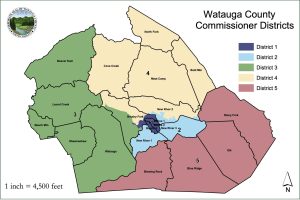




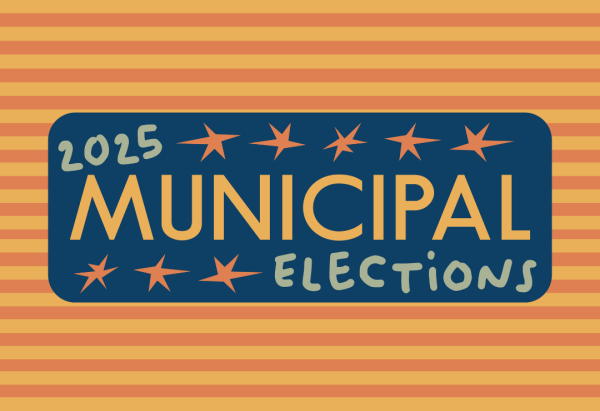
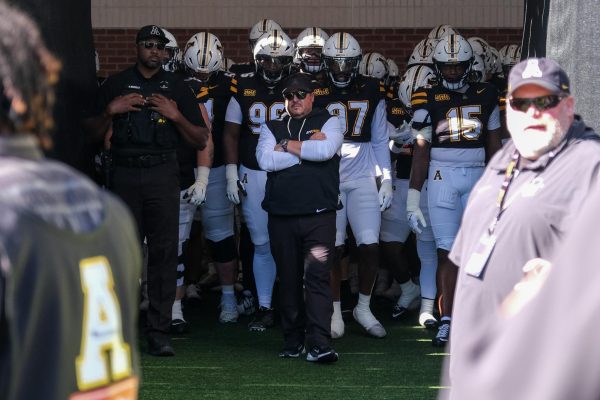

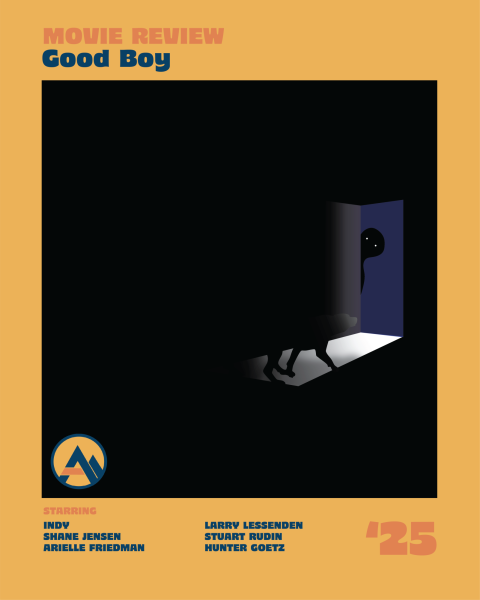
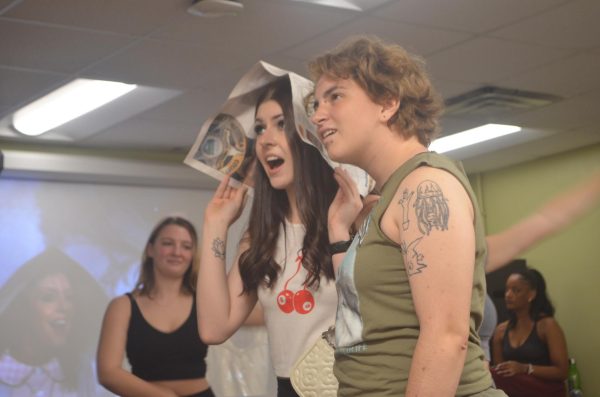

Nancy LaPlaca • Oct 17, 2019 at 6:59 am
Hello: you might want to edit this before you print it! Many sentences make no sense. A simple phone call could have changed a garbled message into a useful statement.